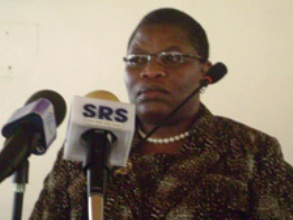Dependence on oil revenue will cripple South Sudan’s economy: W. Bank
By Julius N. Uma
September, 5, 2010 (JUBA) — The Government of Southern Sudan (GOSS) should adopt a broad-based economic strategy that prioritizes the needs of its population and avoids over-dependence on the country’s oil revenues, a top World Bank (WB) official has advised.

Ezekwesili emphasized the urgent need for the semi-autonomous region to start utilizing its vast non-oil resources.
“Over the years, experience has shown that for a country to move fast in its development plans, it needs to adopt a broader-based economic strategy, that is medium and long-term in nature,” Ezekwesili told a press conference in Juba.
187 member countries are shareholders in the WB, which is a vital source of financial and technical assistance to developing countries and has a wide range of projects focusing on education, health, infrastructure, communications, government reforms, and for many others.
Ezekwesili took a tour of various development projects being implemented in Southern Sudan with support from the WB-administered Multi-Donor Trust Fund (MDTF) and said she impressed with the levels of progress.
“Having done an assessment of the various projects being implemented in South Sudan, I have come up with the conclusion that this region wants development. The World Bank will always remain a strategic partner to South Sudan’s development,” she remarked.
Ezekwesili, who was flanked by the GoSS Finance and Economic Planning Minister, David Deng Athorbei, further urged the government to adopt proper economic policies, involving wise utilization of public resources.
She also lauded WB officials in South Sudan for their demonstrable commitment, especially in their management of the MDTF, which she described as having being particularly important in delivering essential services to the people.
Athorbei appealed to the WB to provide technical guidance on how the semi-autonomous region can effectively utilize its non-oil resources. Such assistance, he said, should continue even after the post-referendum period.
“The Word Bank should help the Government of South Sudan in its capacity-building initiatives. We expect this cooperation and assistance to continue even during the post-referendum era,” Athorbei said.
(ST).
